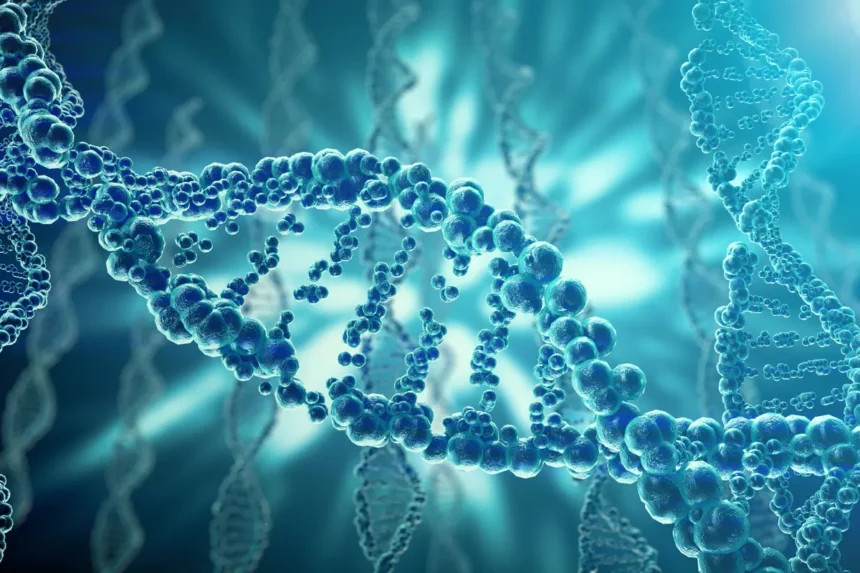First-of-its-Kind AI Technology Transforms Rare Disease Diagnosis
Rare disease diagnosis has taken a monumental leap forward thanks to researchers at London Health Sciences Centre (LHSC) and Lawson Health Research Institute. Using cutting-edge artificial intelligence (AI) and epigenetic technologies, scientists can now identify previously undetectable rare diseases and prenatal exposure-related disorders through a simple blood test. This breakthrough promises faster, more accurate diagnoses, offering hope to patients and families who have long faced uncertainty.
The technology, called EpiSign, was developed by Dr. Bekim Sadikovic and his team at Lawson. EpiSign analyzes the epigenome, a chemical layer on top of DNA that regulates which genes are active or silent. By examining these epigenetic patterns, the tool can identify over 150 rare diseases, offering hope to patients who previously could not obtain a definitive diagnosis. https://rarediseases.org/
How EpiSign Works
EpiSign leverages AI to detect subtle epigenetic changes in DNA. Traditional genetic testing focuses solely on the DNA sequence itself, which is not always sufficient to pinpoint rare or environmentally induced disorders. EpiSign instead measures epi-signatures, unique patterns in the epigenome associated with specific diseases.

In clinical applications, EpiSign has been used to:
- Diagnose recurrent constellation of embryonic malformations (RCEMs), a group of birth disorders identified decades ago but previously undetectable with conventional testing.
- Identify fetal valproate syndrome, caused by prenatal exposure to medications used for epilepsy, migraines, or bipolar disorder. This exposure can result in neurodevelopmental, learning, and motor disorders in children.
The technology allows clinicians to detect environmental and genetic contributions to disease, providing a level of diagnostic precision that was unattainable before.
Transforming Patient Outcomes
For patients, EpiSign represents a lifeline. Many individuals with rare diseases spend years undergoing repeated tests without ever receiving an accurate diagnosis. Dr. Sadikovic estimates that two-thirds of patients currently do not get definitive results from standard testing methods. EpiSign has the potential to change that by providing rapid, accurate diagnoses, guiding better treatment decisions, and helping families plan for the future.
With prenatal exposure conditions like fetal valproate syndrome, the implications are profound. Doctors can now identify children affected by prenatal medication exposure, enabling early interventions to improve developmental outcomes.
Clinical Research and Global Collaboration
The EpiSign development and research involve collaboration with a global network of institutions, including trials in the United Kingdom, Australia, and European Union countries. Ongoing studies aim to expand the use of EpiSign to over 700 rare disorders, including potential applications in oncology and complex genetic syndromes.
The research has been published in leading journals, demonstrating both the scientific rigor and the transformative potential of AI-assisted epigenetic diagnostics. By combining clinical expertise with machine learning, EpiSign sets a precedent for the future of rare disease diagnosis.
Advantages Over Traditional Methods
Traditional diagnostic testing often relies on sequencing or targeted gene panels. While effective for common genetic conditions, these methods fail in a large number of rare and complex disorders. EpiSign overcomes these limitations by:
- Detecting epigenetic markers not visible in standard DNA sequencing.
- Providing insights into both genetic and environmental factors.
- Offering faster, more comprehensive results from a minimally invasive blood test.
This approach reduces the physical, emotional, and financial burden on patients who might otherwise undergo repeated, inconclusive testing.
Impact on Families and Healthcare
Families of patients with rare diseases often face uncertainty and frustration. EpiSign’s ability to deliver a diagnosis can relieve the emotional burden and allow for timely interventions, therapies, and genetic counseling. It also empowers healthcare providers to make informed decisions and prioritize care based on precise diagnostic information.
Furthermore, the accessibility of this technology can be scaled globally, ensuring patients in regions with limited diagnostic infrastructure can benefit from accurate testing.
Future Directions in Epigenetic Diagnostics
The success of EpiSign opens the door for broader applications in healthcare:
- Expanding the database of epi-signatures for previously undiagnosed rare disorders.
- Identifying environmental risk factors affecting fetal development.
- Developing personalized medicine approaches based on individual epigenetic profiles.
- Improving early detection of diseases like cancer and metabolic disorders through blood-based epigenetic biomarkers.
Dr. Sadikovic emphasizes that this is just the beginning. With continuous research, AI, and global collaboration, EpiSign could redefine how clinicians approach complex and rare diseases in the future.

Conclusion
EpiSign represents a revolutionary advancement in rare disease diagnosis, providing answers where none existed. By combining AI with epigenetics, scientists can detect over 150 rare disorders from a blood test, including conditions caused by prenatal exposures. This technology improves outcomes for patients, guides treatment decisions, and offers hope for families navigating the uncertainties of rare diseases.
As ongoing trials expand the use of EpiSign, the potential for early intervention, improved prognosis, and personalized medicine continues to grow, marking a transformative moment in healthcare.




